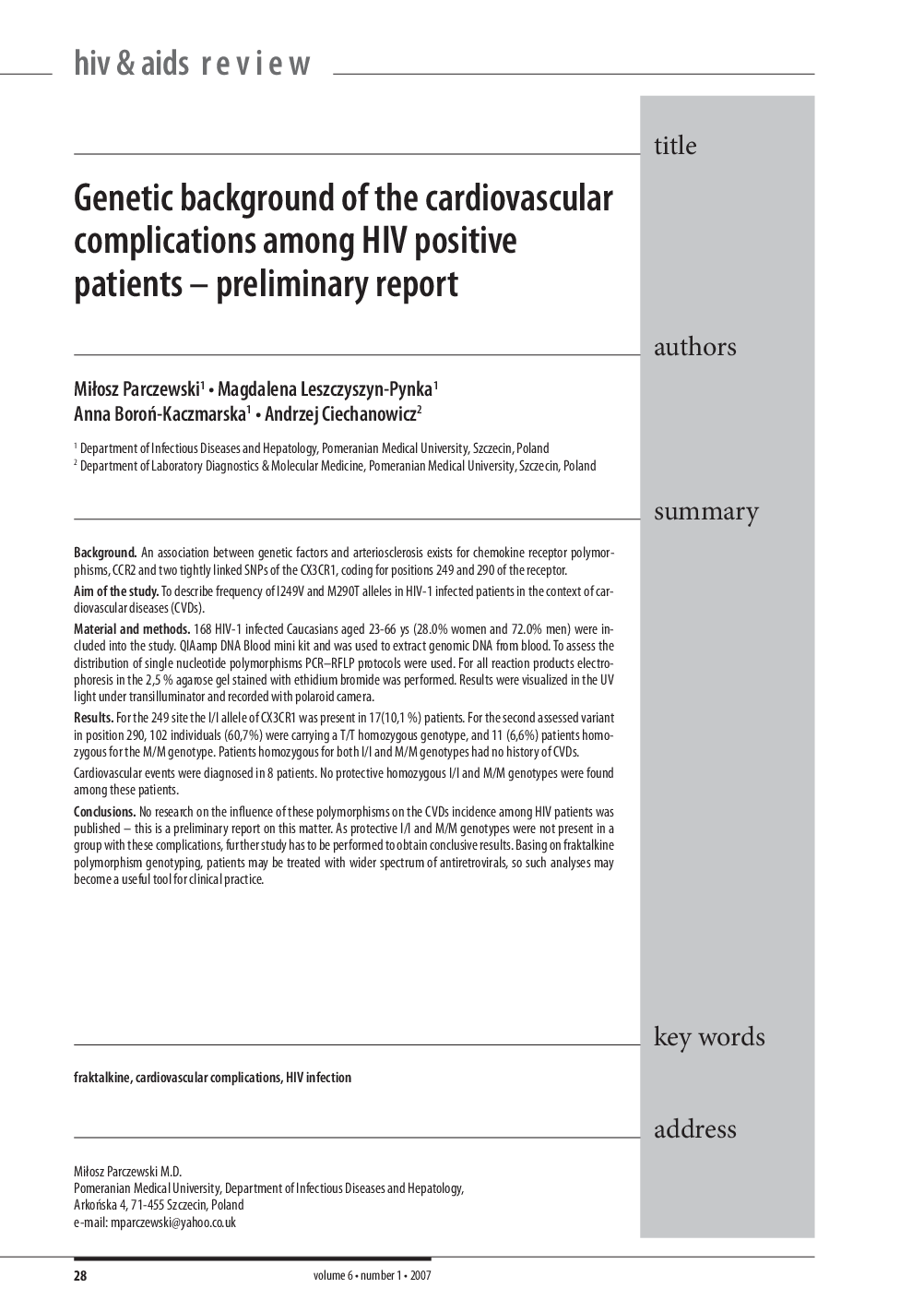| Article ID | Journal | Published Year | Pages | File Type |
|---|---|---|---|---|
| 3332562 | HIV & AIDS Review | 2007 | 4 Pages |
SummaryBackgroundAn association between genetic factors and arteriosclerosis exists for chemokine receptor polymorphisms, CCR2 and two tightly linked SNPs of the CX3CR1, coding for positions 249 and 290 of the receptor.Aim of the studyTo describe frequency of I249V and M290T alleles in HIV-1 infected patients in the context of cardiovascular diseases (CVDs).Material and methods168 HIV-1 infected Caucasians aged 23-66 ys (28.0% women and 72.0% men) were included into the study. QIAamp DNA Blood mini kit and was used to extract genomic DNA from blood. To assess the distribution of single nucleotide polymorphisms PCR-RFLP protocols were used. For all reaction products electrophoresis in the 2,5 % agarose gel stained with ethidium bromide was performed. Results were visualized in the UV light under transilluminator and recorded with polaroid camera.ResultsFor the 249 site the I/I allele of CX3CR1 was present in 17(10,1 %) patients. For the second assessed variant in position 290, 102 individuals (60,7%) were carrying a T/T homozygous genotype, and 11 (6,6%) patients homozygous for the M/M genotype. Patients homozygous for both I/I and M/M genotypes had no history of CVDs.Cardiovascular events were diagnosed in 8 patients. No protective homozygous I/I and M/M genotypes were found among these patients.ConclusionsNo research on the influence of these polymorphisms on the CVDs incidence among HIV patients was published – this is a preliminary report on this matter. As protective I/I and M/M genotypes were not present in a group with these complications, further study has to be performed to obtain conclusive results. Basing on fraktalkine polymorphism genotyping, patients may be treated with wider spectrum of antiretrovirals, so such analyses may become a useful tool for clinical practice.
